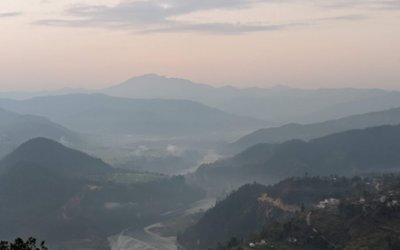As Nepal has been passing through a series of political instability, economic progress and agenda are on backburner. Due to lack of jobs, a large number of youth are leaving the country in search of better prospects.
Although Nepal has made certain progress in peace process and constitution writing, the major agenda of economic development, under which Nepal can generate employment opportunities for the youth, is yet to get the needed priority.
This is what one could gather from a function, organized jointly by US Embassy and Economic Journalists of Nepal (EJON), where US ambassador to Nepal Scott H.Delisi suggested Nepal should focus on economic agenda.
“There is an urgent need to find a real message of hope founded on values that matter. A message that has at its core a truly inclusive democracy in which there is real opportunity for all citizens, in which the public good comes before personal privilege, and in which corruption, impunity, and the disregard of basic human rights are an exception to be condemned rather than a norm to be tolerated,” said the US ambassador DeLisi.
For more than a couple of years now, country’s political leaders have been giving the topmost priority to concluding the peace process and successfully drafting the constitution, leaving the economy of the nation at bay and sidelining the need of economic development.
US ambassador Delisi differed from the political leaders. “I believe that Nepal’s toughest challenge is not concluding the peace process or drafting the constitution, but rather building an economic future for the young people of Nepal.”
Nepal is sandwiched between two of the fastest growing economies of the world—India and China. But, despite the neighboring nations’ economic growth rates touching the sky, Nepal’s economy is likely to grow by an insipid 3.5% this year. “Just the spillover effects from these two countries should create thousands of jobs and expand trade,” said the ambassador.
Although Nepal Living Standards Survey (NLSS III) reports the improvement in the Nepalese lifestyle and consumption level, this has been possible only on the grounds of increased remittance. “Like an addictive drug that feels good today but causes devastation in the long run, remittances provide a short term boost to the economy but only forestall the need to make tough economic choices – which are even harder to accommodate, the longer the government waits,” said the US ambassador.
Currently, 73% of Nepal’s population is under 35 years and 50% is under 18. But, daily more than 1000 Nepalese are fleeing to foreign countries seeking opportunities, giving up hopes in their own nation. The privileged ones are going to America and other European countries, while the less privileged ones are set for the Middle East and Malaysia. “I fear that the nation has not been giving its youth reason to believe—the country may be squandering its future,” said DeLisi.
Nepal has been struggling to lure foreign investments and domestic business houses have not been able to capitalize on vast resources of the country amidst political instability, labor problems and power shortages.
It’s been just over a month when the high level trade delegation from the American Chamber of Commerce left the country on a very positive note – raising hopes for the much needed foreign investment to boost the economy of the nation. However, the recent closure of Surya Nepal garment factory due to various labor issues -- in which more 2000 people lost their jobs-- has sent a negative message to potential foreign investors.
“The closure was a setback for the country’s economic development and diminishes our efforts to convince foreign investors that Nepal is open for business,” said the US ambassador to Nepal.
Short-term profit-minded, businessmen who seek to avoid paying taxes and maneuver to sneak their money out of the country and some political leaders’ view of business as a source of funding for their parties or as targets to be exploited for their personal gain - have stalled the economic growth, said the US ambassador.
IT outsourcing, tourism sector like trekking, adventure travel, eco- tourism, religious tourism and birding tours, hydropower and agriculture sector offer vast potential and opportunities, said DeLisi succinctly.
United Nations and Nepal recently signed a Trade and Investment Framework Agreement (TIFA) to facilitate trade and resolve disputes. Similarly, USAID program is focused on helping the economy of Nepal. Along with those projects, US embassy is also organizing various other projects for the economic growth of Nepal. DeLisi assured that US would invest in Nepal and would remain focused on economic issues. “We want to work with leaders from business community, civil society, labor, even politicians, who are committed to promoting the economic growth. We want to work with young entrepreneurs who can drive the economy. When they thrive, big businesses and even investors would follow,” he added.
- TANAHU HYDROPOWER PROEJCT: A Significant Achievement
- Apr 15, 2024
- AMBASSADOR HANAN GODAR: Sharing Pain With A Nepali Family
- Mar 30, 2024
- VISIT OF KfW AND EIB TO NEPAL : Mission Matters
- Mar 25, 2024
- NEPAL BRITAIN SOCIETY: Pratima Pande's Leadership
- Mar 24, 2024
- NEPAL ARMY DAY: Time To Recall Glory
- Mar 15, 2024
















